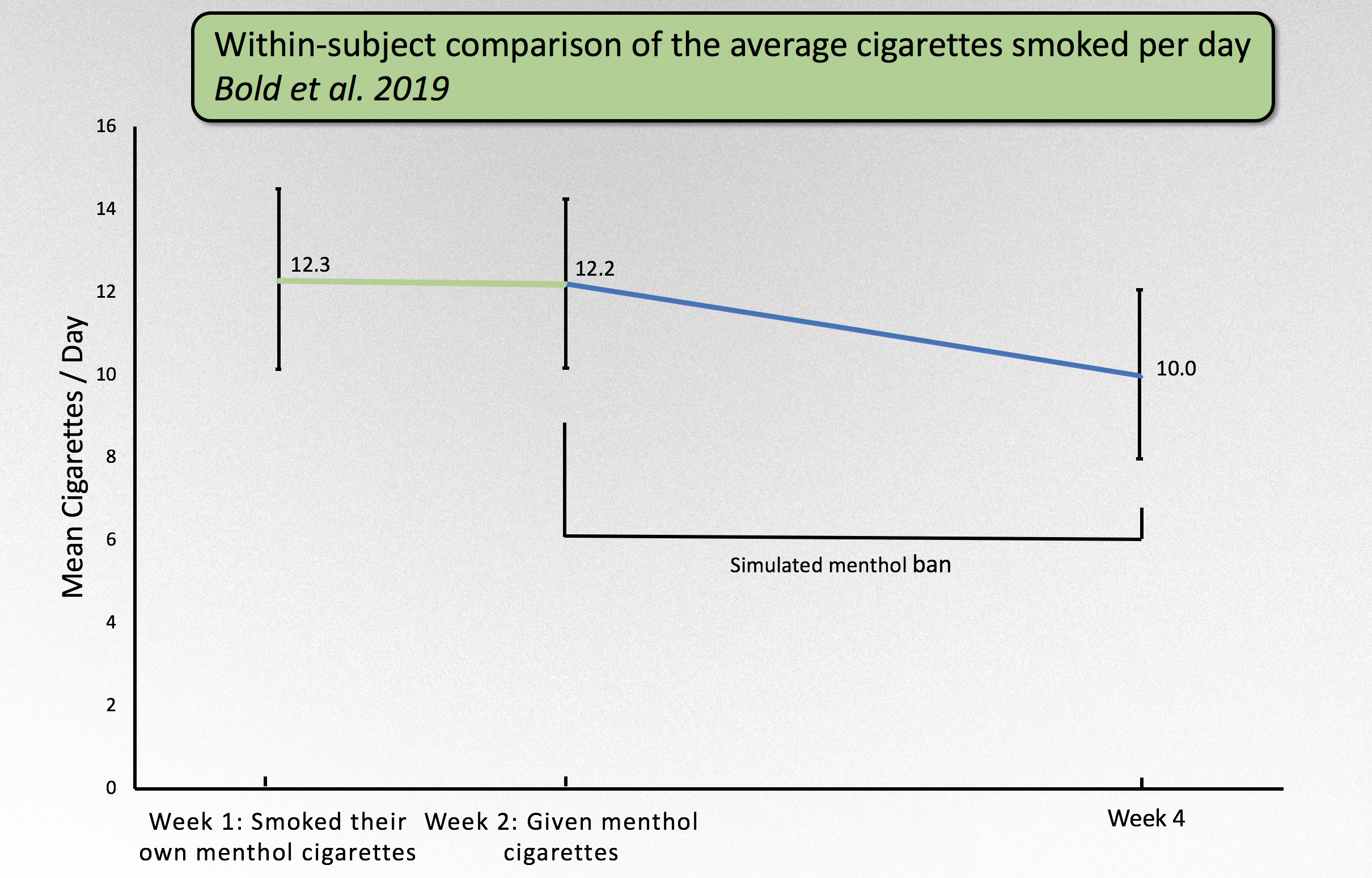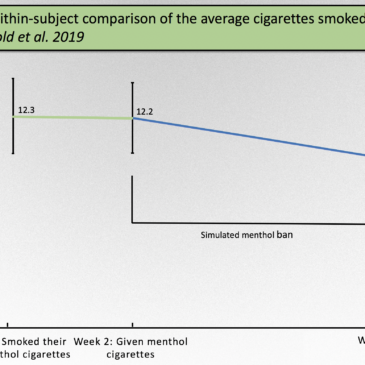The overall rate of traditional cigarette smoking in the United States has decreased significantly over the past 50 years. However, the rate of menthol cigarette smoking has declined at a slower rate. While menthol cigarette smokers are more likely to make a quit attempt, they are less likely to remain abstinent compared to traditional cigarette smokers. Could a ban on menthol cigarettes help this struggling group? This week, ASHES reviews a study by Krysten Bold and colleagues that used a quasi-experimental research design to assess smoking behaviors and attitudes among menthol cigarette smokers after a simulated ban on menthol cigarettes.
What was the research question?
What would be the potential impact of a menthol cigarette ban on current menthol cigarette smokers’ smoking habits?
What did the researchers do?
The researchers recruited 29 non-treatment-seeking adults who smoked menthol cigarettes in Connecticut in 2017-2018. During week one, participants smoked their own cigarettes. During week two, participants were given their preferred menthol cigarettes; this phase of the study controlled for the effects of being given free cigarettes. During weeks three and four, participants were instructed to abstain from menthol cigarette smoking (i.e., a “simulated ban”) and were given brand-matched non-menthol cigarettes as a substitution; they were not asked to reduce their smoking overall. After each week, the researchers assessed the number of cigarettes smoked, subjective experiences of smoking, and nicotine dependence levels. They used paired sample t-tests to evaluate within-person changes between the menthol and nonmenthol phases of the study and used a regression analysis to examine the possible effect of differing demographics, including race and gender.
What did they find?
During the simulated menthol-cigarette ban period, half the sample admitted to buying and smoking at least one menthol cigarette. However, although they could smoke as many non-menthol cigarettes as they wanted, they smoked fewer (on average) per day, compared to when they smoke menthol cigarettes (see figure). They also self-reported lower levels of smoking satisfaction and nicotine dependence. Additionally, Black smokers had greater reductions in cigarettes per day than non-Black smokers.

Figure. Mean number of cigarettes smoked over the course of the study. The vertical lines show the 95% confidence interval. It is important to note that this graph only shows three of the four measurement points and the connecting lines are not necessarily linear. The drop in mean cigarettes smoked from Week 2 to Week 4 was statistically significant. Click the image to enlarge.
Why do these findings matter?
The results of this study suggest that a ban on menthol cigarettes could potentially decrease the prevalence of smoking, both in terms of the amount of smoking among smokers and the number of smokers due to its addictive nature. A menthol-ban may be especially effective for Black smokers who have historically been the target of menthol advertising campaigns.
Every study has limitations. What are the limitations in this study?
This was only a simulated ban, and half of the participants reported a clear deviation from what an actual ban would allow. The study only assessed cigarette behavior for two weeks. It is unclear if these promising results would continue as time passed and the participants potentially adjusted to the new type of cigarette, potentially through a mere-exposure effect.
For more information:
SmokeFree offers tools and tips for quitting and maintaining abstinence from smoking tobacco. For more information about addiction, visit our Addiction Resources page.
— Alex LaRaja
What do you think? Please use the comment link below to provide feedback on this article.




